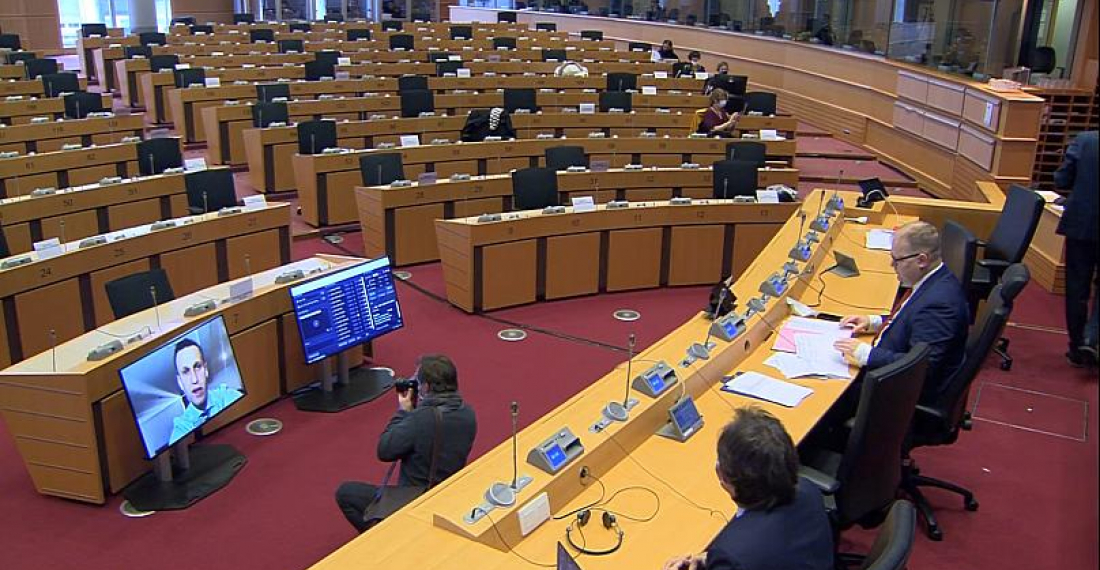Alexei Navalny has told MEPs that sanctions on Russia should target the money and the Russian oligarchs within Putin’s inner circle.
In October, the EU placed sanctions on a number Russian officials after concluding that an attack on Navalny using the prohibited chemical weapon Novichok, could not have been carried out without the support of Russian Security Services. However, speaking via video link to the European Parliament Foreign Affairs Committee, the Russian opposition figure, argued that such sanctions would not have any impact on the country’s leadership.
Navalny asked MEP’s to look at what drives Russian killings and election tampering, stating, ‘The answer is very, very simple: money’. He accused the EU of hypocrisy for allowing oligarchs, who have benefitted from Putin’s rule and act against both the Russian People and Europe, to enjoy the benefits of the continent.
Navalny suggested that the EU develop a new strategy:
“The basis of a new approach should be very clear dividing two things: Russian people, who must be welcomed and treated very warmly from European Union from my perspective; and Russian state, which must be treated like a bunch of criminals.”
He asserted that without targeting oligarchs, the sanctions would not be taken seriously by Russia and the Kremlin, adding that such an approach would be welcomed by the Russian people.






